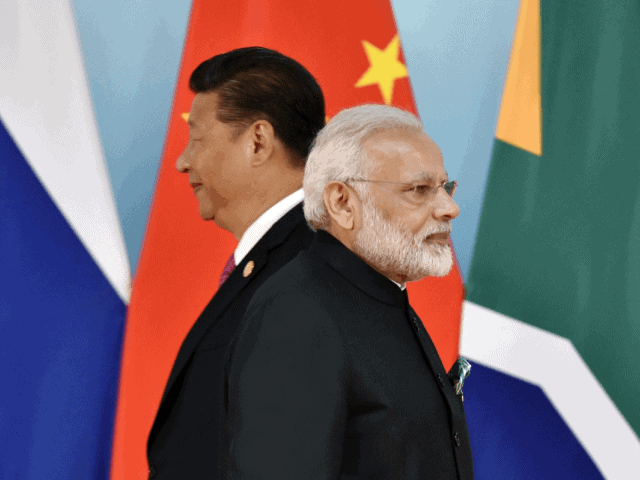India Blocks China’s Costly Belt and Road by Halting Entrance to Kashmir

India has provided the latest setback for the “China Pakistan Economic Corridor” (CPEC) by blocking the venture’s planned projects in Pakistan-occupied Kashmir, the Times of India (TOI) reported on Monday.
Part of China’s broader Belt and Road Initiative (BRI) — a system by which China establishes economically predatory infrastructure projects in developing nations in an effort to widen its global reach — CPEC is now viewed by economic analysts as a “trillion-dollar blunder,” according to the newspaper.
There are a number of CPEC infrastructure projects currently under development in Pakistan. CPEC’s total value was originally estimated at $46 billion; this figure has now ballooned to an estimated $87 billion, with only a quarter of the proposed projects having been completed, according to the report.
With a debt quotient of $80 billion, CPEC has faced increasing criticism from domestic and foreign critics alike. According to TOI, the local government of Pakistani province Khyber Pakhtunkhwa recently passed a resolution against CPEC after some of its infrastructure projects were slated to be built within the region, prompting concern from locals.
Now, India has become the latest entity to publicly stand up against CPEC, specifically in opposition to its proposed projects within Kashmir. India, Pakistan, and China all dispute parts of Kashmir, though China typically stays in the background of elevated tensions between India and Pakistan. India claims that Pakistan has illegally occupied that territory and has consistently objected to the carrying out of what it considers illegal activities, such as the construction of infrastructure projects by Pakistan and China, in the disputed region.
On May 13, Pakistan’s government signed a $5.8 billion contract with China to build the Diamer-Bhasha Dam in Gilgit-Baltistan, located in Pakistan-occupied Kashmir (PoK). Responding to the proposed joint venture — part of the greater CPEC project — India’s Ministry of External Affairs said on May 14:
Our position is consistent and clear that entire territory of the [Indian] Union Territories of Jammu and Kashmir and Ladakh have been, are, and will continue to be integral and inalienable part[s] of India. We have consistently conveyed our protests and shared concerns with both Pakistan and China on all such projects in the Indian territories under Pakistan’s illegal occupation.
Under international law, China is barred from constructing anything in Pakistan-occupied Kashmir, as it legitimately pertains to the Indian state. The territory is accepted by the U.N. as Indian land, according to a 1948 resolution on Kashmir by the international governing body.
Photo: KENZABURO FUKUHARA/AFP/Getty Images




